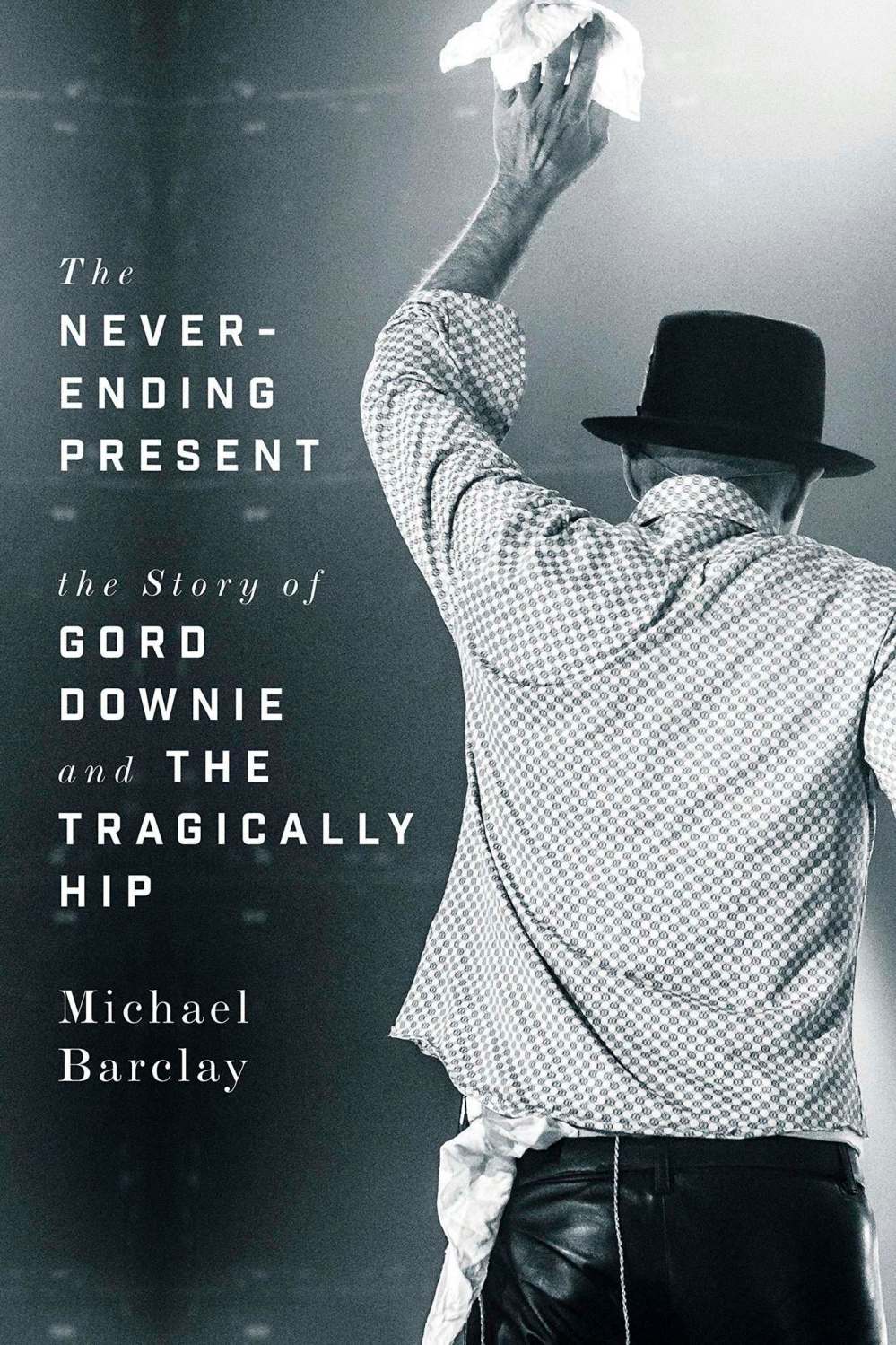Long time running
Rock writer's new book examines the Tragically Hip and why they still matter to millions
Advertisement
Read this article for free:
or
Already have an account? Log in here »
To continue reading, please subscribe:
Monthly Digital Subscription
$0 for the first 4 weeks*
- Enjoy unlimited reading on winnipegfreepress.com
- Read the E-Edition, our digital replica newspaper
- Access News Break, our award-winning app
- Play interactive puzzles
*No charge for 4 weeks then price increases to the regular rate of $19.00 plus GST every four weeks. Offer available to new and qualified returning subscribers only. Cancel any time.
Monthly Digital Subscription
$4.75/week*
- Enjoy unlimited reading on winnipegfreepress.com
- Read the E-Edition, our digital replica newspaper
- Access News Break, our award-winning app
- Play interactive puzzles
*Billed as $19 plus GST every four weeks. Cancel any time.
To continue reading, please subscribe:
Add Free Press access to your Brandon Sun subscription for only an additional
$1 for the first 4 weeks*
*Your next subscription payment will increase by $1.00 and you will be charged $16.99 plus GST for four weeks. After four weeks, your payment will increase to $23.99 plus GST every four weeks.
Read unlimited articles for free today:
or
Already have an account? Log in here »
Hey there, time traveller!
This article was published 01/11/2018 (2579 days ago), so information in it may no longer be current.
Life on the road in Canada can be a chore — ask any musicians who have driven large swaths of the country and they’ll tell you stories of long, tedious drives between cities or towns before rolling up to the next gig.
Michael Barclay has been driving many of those same roads in support of his second book, The Never-Ending Present: The Story of Gord Downie and the Tragically Hip.
“I’m at the stage in the tour where I’m realizing that booking an 18-date cross-country tour entirely by myself without a night off is getting to be a bit of a grind,” the 47-year-old Toronto writer says by phone from Vancouver before heading east across the Prairies for readings of his bestseller.

“I really wanted to see the country… and meet people to whom this story means so much,” explains Barclay. “Having those conversations with people has been really exciting.”
His Winnipeg stop is the last on a coast-to-coast tour, where he’s met all manner of Hip fans — from longtime devotees with their own personal stories to tell, to newer fans curious about the Hip as a result of the band’s 2016 farewell tour and Downie’s death from brain cancer in 2017 at age 53.
Barclay — a longtime contributor to national music magazine Exclaim! — had his first outing as author with the 2001 book Have Not Been the Same: The Can-Rock Renaissance 1985-1995, which he co-wrote with Ian A.D. Jack and Jason Schneider. His first experience with the Hip, meanwhile, came in 1988 when, at age 16, he saw the band play a 1 p.m. Canada Day slot on a bill headlined by Montreal band the Box.
“Their EP was the only thing out at that point,” Barclay recalls. “It was really thrilling. I saw them as often as I could, which was not that often as an underage kid in those early years. I saw them at least once a year through most of the ’90s.”
For The Never-Ending Present, Barclay interviewed numerous Hip cohorts, longtime friends of the band, business associates and record producers, crafting the first comprehensive biography of the iconic Canadian group, which began in the late 1980s as a bar band before the success of its debut full-length, 1989’s Up to Here.
The book features no input from the five-piece band fronted by the charismatic Downie, but mines plenty of existing interviews and other source material, chronicling the band’s rise to unparalleled popularity in Canada while touching on a number of other areas, such as hockey, Downie’s solo career, Indigenous rights, the perils of the music industry and more.

In order to pull together such a comprehensive chronology, Barclay had to wear many hats. “I’ve only ever written about music my whole life,” he says. “For this book I had to be a health reporter, Indigenous rights reporter, business reporter — it was a welcome challenge.”
It was Downie’s May 2016 diagnosis with terminal glioblastoma — an aggressive cancer that begins in the brain — that prompted the band’s massive farewell tour that year, which culminated on Aug. 20 in their hometown of Kingston, Ont., with a show that was broadcast country-wide by the CBC and watched by millions.
“There’s a lot of (more casual fans) who were drawn to the story of that final tour and to (Downie’s) Secret Path project, and wanted to know what the big deal was — why we cared so much about this guy in the first place,” says Barclay, whose piece in Maclean’s magazine about the importance of the Hip’s final tour became the genesis of The Never-Ending Present.
Secret Path was the project Downie undertook to help disseminate the story of Chanie Wenjack and Canada’s legacy of residential schools, where Indigenous children were taken from their communities and placed in facilities that aimed to strip them of their culture. In addition to the Secret Path album, Downie worked with graphic artist Jeff Lemire to create a book detailing Wenjack’s escape from a residential school and eventual death while seeking out his family. A television series also ensued, garnering Downie two posthumous Canadian screen awards.
Downie’s work on Indigenous issues late in his life helped bring long-ignored issues to a greater number of Canadians. “He changed the conversation,” Barclay says. “Hundreds, thousands of voices had been telling (the residential school) story for decades; the vast majority of Canadians were more than happy to not hear about this original sin.”

As for the enduring adoration of Downie and the Hip, Barclay chalks it up in part to how we interact with our favourite pieces of art. “You might read your favourite book two or three times in your lifetime; you might see your favourite film 10 times. But your favourite music is with you constantly. That’s why this music means so much to people — because it’s so prevalent in their everyday lives.”
books@freepress.mb.ca


